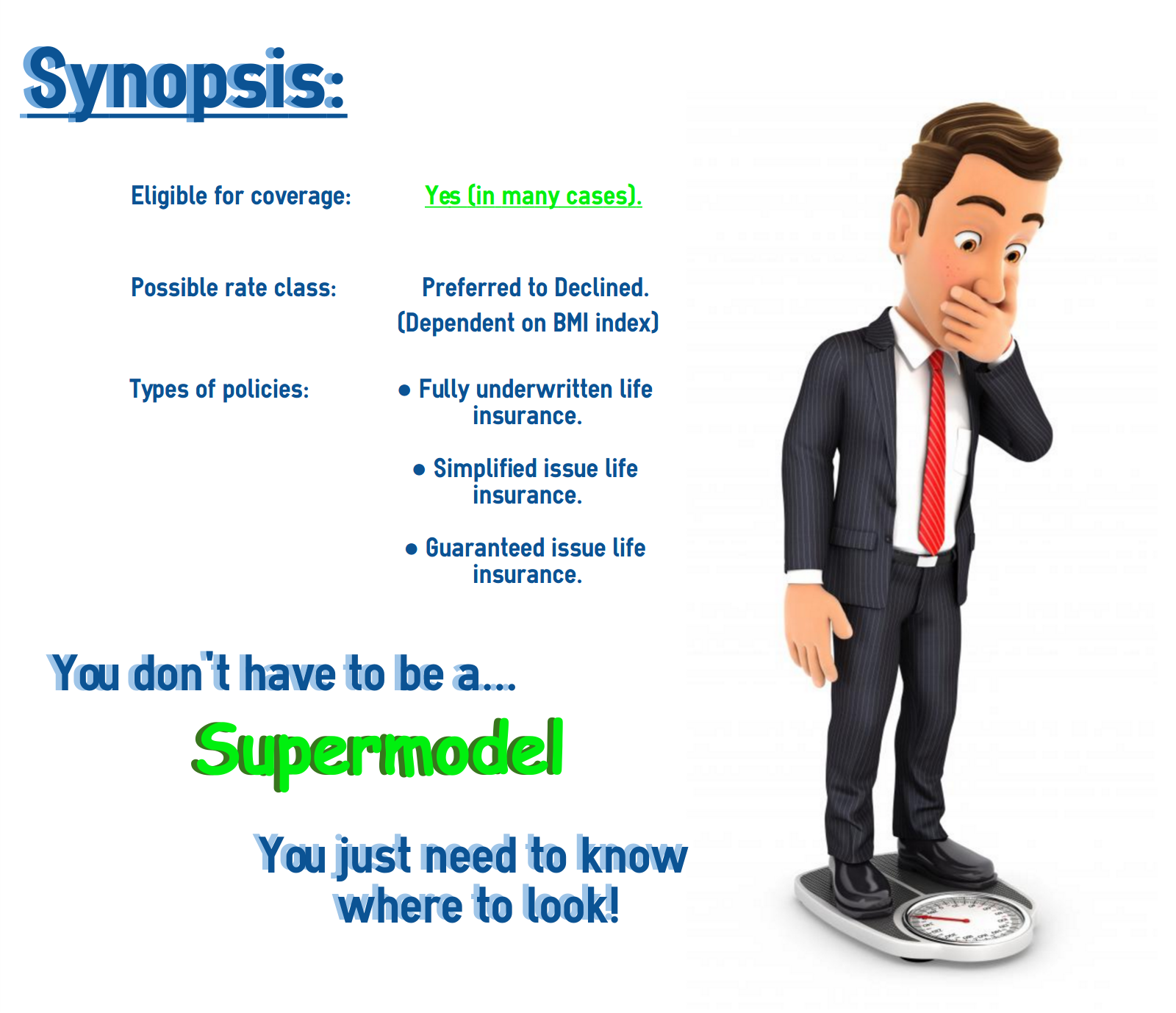Overweight or Obese Life Insurance Tips #1. Be Honest about your Weight. At TermLife2Go, we work exclusively for you. #2. Find someone that is working for you, not the insurance company. #3. Be Prepared For Your Exam. For overweight clients taking a life insurance exam it is important... #4. .... Morbid obesity often interferes with a person’s ability to walk or perform other basic physical functions. Someone who is morbidly obese is considered the highest risk for a life insurance company. Your ability to secure an affordable policy does become difficult if you are significantly obese..
And, here’s the good news: you can secure life insurance even if you’re overweight or obese. According to the U.S. Department of Health and Human Services : More than 1 in 3 adults are considered to be overweight.. Life Insurance Needs for Obese Aside from getting the best type of plan, the next thing to do is add up your insurance needs. Not having enough life insurance protection can leave your family with leftover expenses and no money to cover those bills..

There's Always Some Life Insurance Available To Obese. If you have exhausted ALL options, there are always guaranteed issue products available to most people ages 18 - 85. Don’t buy Guaranteed Issue unless you CANNOT qualify for regular life insurance. IMPORTANT: You can always re-apply for life insurance after you've lost weight.. Reducing Obesity Approximately one in three U.S. adults and one in six children and adolescents are obese. Medicaid and the Children's Health Insurance Program (CHIP) can play a role in reducing the rate of obesity in the United States by improving access to health care services that support healthy weight..

In addition to current insurance coverage being perceived as a barrier, a second study found that three out of four patients are affected by obesity or overweight, yet less than half (48%) of these.... When you apply for health coverage, you are asked for your height and weight. With those two determinants, insurance company underwriters can conclude if you are overweight or obese through body mass index (BMI). The higher your BMI, the more likely your insurance premiums will rise.. On average, obese men and women pay about twice as much for life insurance than those who are at a healthy weight, as defined by the CDC. Overweight applicants pay more, but less than obese ....



